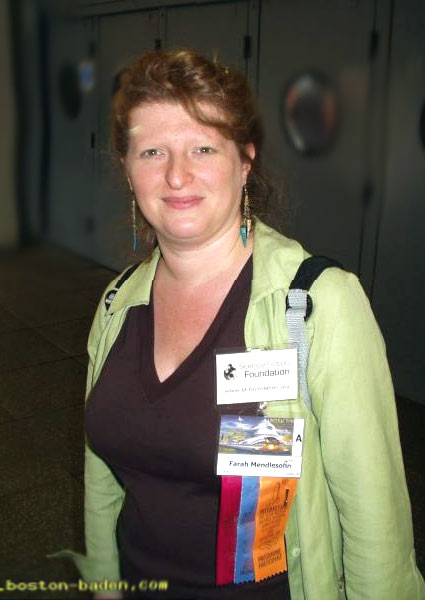Rhetorics of Fantasy applies Mendlesohn’s historian training to understanding fantasy. Since Mendlesohn studied American religious history as a postgraduate, perhaps it’s not surprising that she sees models for the fantasy form in scripture and religious allegory. And there’s something to that, since George MacDonald, who largely invented modern fantasy, was a clergyman. But Mendlesohn goes further.
Most important, Mendlesohn creates categories to understand what fantasy does rather than trying to define what it is. Where Tzvetan Todorov bogs down in contradictory, confusing definitions, Mendlesohn’s primarily descriptive taxonomy doesn’t force the fantastic into preconceived templates. Mendlesohn defines fantasy by its actions—like Chomsky’s generative language.
 Despite the “rhetoric” in her title, Mendlesohn doesn’t minutely analyze word choices or parse the neuropsychology that has hijacked recent rhetoric. Instead, she closely considers writers’ storytelling choices with an eye toward how they reconcile realistic character with frank portrayals of the supernatural. This approach yields four broad categories that describe most modern fantasy.
Despite the “rhetoric” in her title, Mendlesohn doesn’t minutely analyze word choices or parse the neuropsychology that has hijacked recent rhetoric. Instead, she closely considers writers’ storytelling choices with an eye toward how they reconcile realistic character with frank portrayals of the supernatural. This approach yields four broad categories that describe most modern fantasy.Unlike Susannah Clements, whom I praised last week, Mendlesohn uses critical terminology that may send less experienced scholars rushing for Google. She also draws from less than chipper forebears like Wayne C. Booth and Northrop Frye. Be warned: Mendlesohn’s dense writing can appear imposing at first.
But she also doesn’t indulge tedious passages of unpleasant theory. If readers can persevere through her admittedly tough discourse, Mendlesohn presents interesting perspectives on how writers create, and readers receive, nonrealistic fiction. Her active mind and eager sharing set her well above the banal gasbags who sadly dominate criticism.

No comments:
Post a Comment